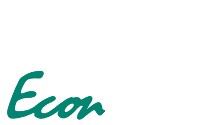148-11
Universität Siegen
Fakultät Wirtschaftswissenschaften, Wirtschaftsinformatik und Wirtschaftsrecht
Volkswirtschaftliche Diskussionsbeiträge
Katherina Popkova
Can the exchange rate regime influence corruption?
This paper analyses the influence of the exchange rate regime of a country on the level of tolerated corruption with a special focus on the interdependency of monetary and fiscal policies. Using a simple theoretical framework based on Barro-Gordon-Model I compare independent monetary policy with a tight peg arrangement in order to find out which regime is more likely to induce governments to intensify the fight against corruption. It is shown that if corruption has a considerable positive impact on output, a tight peg regime can increase tolerated corruption. However, if corruption has a negative effect on output, a pegged exchange rate regime will lead to a lower level of tolerated corruption. The issue of particular interest appears to be the finding that a strong positive impact of corruption on output can induce governments to choose a pegging regime while a weak positive impact of corruption (and a negative influence of corruption even more) provides an incentive to keep monetary independence.
